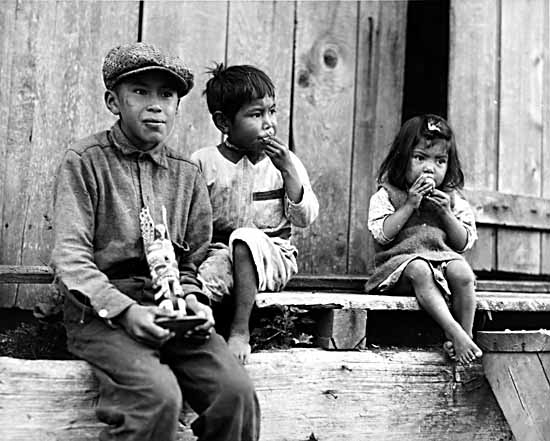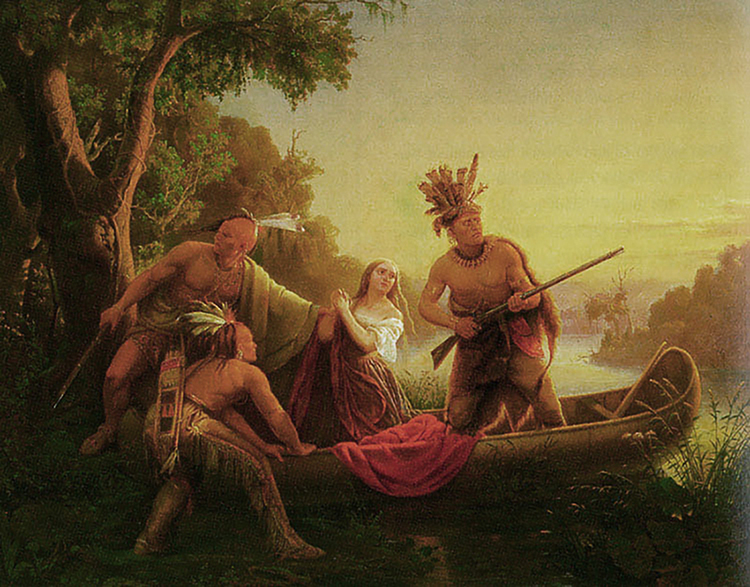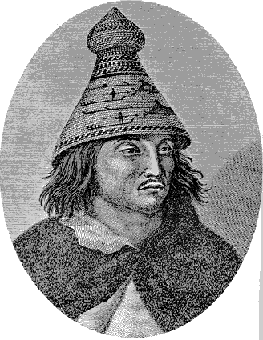|
Nuu-chah-nulth People
The Nuu-chah-nulth ( ; ), also formerly referred to as the Nootka, Nutka, Aht, Nuuchahnulth or Tahkaht, are one of the Indigenous peoples of the Pacific Northwest Coast in Canada. The term Nuu-chah-nulth is used to describe fifteen related tribes whose traditional home is on the west coast of Vancouver Island. In precontact and early post-contact times, the number of tribes was much greater, but the smallpox epidemics and other consequences of contact with Europeans resulted in the disappearance of some groups and the absorption of others into neighbouring groups. The Nuu-chah-nulth are related to the Kwakwaka'wakw, the Haisla, and the Ditidaht First Nation. The Nuu-chah-nulth language belongs to the Wakashan family. The governing body is the Nuu-chah-nulth Tribal Council. History Contact with Europeans When James Cook first encountered the villagers at Yuquot in 1778, they directed him to "come around" (Nuu-chah-nulth ''nuutkaa'' is "to circle around")Campbell, Lyle ... [...More Info...] [...Related Items...] OR: [Wikipedia] [Google] [Baidu] |
Yuquot, British Columbia
Yuquot (), also known as Friendly Cove, is a small settlement of around six people—the Williams family of the Mowachaht band—plus two full-time lighthouse keepers, located on Nootka Island in Nootka Sound, just west of Vancouver Island, British Columbia, Canada. It was the summer home of Chief Maquinna and the Mowachaht/Muchalaht (Nuu-chah-nulth) people for generations, housing approximately 1,500 people in 20 traditional wooden longhouses. The name means "Wind comes from all directions" in Nuu-chah-nulth. The community is located within the Strathcona Regional District but like all Indian Reserve communities is not governed by nor represented in the regional district. The Mowchaht/Muchalaht First Nations are rather part of the Nuu-chah-nulth Tribal Council, which unites the governments of the indigenous communities of the Island's West Coast. The Canadian government declared Friendly Cove a National Historic Site in 1923, with recognition of the significance of the Sp ... [...More Info...] [...Related Items...] OR: [Wikipedia] [Google] [Baidu] |
California
California () is a U.S. state, state in the Western United States that lies on the West Coast of the United States, Pacific Coast. It borders Oregon to the north, Nevada and Arizona to the east, and shares Mexico–United States border, an international border with the Mexico, Mexican state of Baja California to the south. With almost 40million residents across an area of , it is the List of states and territories of the United States by population, largest state by population and List of U.S. states and territories by area, third-largest by area. Prior to European colonization of the Americas, European colonization, California was one of the most culturally and linguistically diverse areas in pre-Columbian North America. European exploration in the 16th and 17th centuries led to the colonization by the Spanish Empire. The area became a part of Mexico in 1821, following Mexican War of Independence, its successful war for independence, but Mexican Cession, was ceded to the U ... [...More Info...] [...Related Items...] OR: [Wikipedia] [Google] [Baidu] |
Infectious Disease
An infection is the invasion of tissue (biology), tissues by pathogens, their multiplication, and the reaction of host (biology), host tissues to the infectious agent and the toxins they produce. An infectious disease, also known as a transmissible disease or communicable disease, is an Disease#Terminology, illness resulting from an infection. Infections can be caused by a wide range of pathogens, most prominently pathogenic bacteria, bacteria and viruses. Hosts can fight infections using their immune systems. Mammalian hosts react to infections with an Innate immune system, innate response, often involving inflammation, followed by an Adaptive immune system, adaptive response. Treatment for infections depends on the type of pathogen involved. Common medications include: * Antibiotics for bacterial infections. * Antivirals for viral infections. * Antifungals for fungal infections. * Antiprotozoals for protozoan infections. * Antihelminthics for infections caused by parasi ... [...More Info...] [...Related Items...] OR: [Wikipedia] [Google] [Baidu] |
Quinault People
The Quinault ( or , kʷínayɬ) are a group of Native American peoples from western Washington in the United States. They are a Southwestern Coast Salish people and are enrolled in the federally recognized Quinault Tribe of the Quinault Reservation. The name "Quinault" is an anglicized (albeit French) version of /ˈkʷinajɬ/, the traditional name of a village at the mouth of the Quinault River, today called Taholah. The river, village, and people were given the anglicized name Quinault in 1787 by the maritime fur trader Charles William Barkley. It is also possible that both names come from a French trapper from the Quinault family who visited the area. Lands The Quinault Indian Reservation, at , is located on the Pacific coast of Washington, primarily in northwestern Grays Harbor County, with small parts extending north into southwestern Jefferson County. It has a land area of 819.294 km2 (316.331 sq mi) and reported a resident population of 1,370 persons as of ... [...More Info...] [...Related Items...] OR: [Wikipedia] [Google] [Baidu] |
Clayoquot Sound
Clayoquot Sound is located on the west coast of Vancouver Island in the Provinces and territories of Canada, Canadian province of British Columbia. It is bordered by the Esowista Peninsula to the south, and the Hesquiaht Peninsula to the North. It is a body of water with many inlets and islands. Major inlets include Sydney Inlet, Shelter Inlet, Herbert Inlet, Bedwell Inlet, Lemmens Inlet, and Tofino Inlet. Major islands include Flores Island (British Columbia), Flores Island, Vargas Island, and Meares Island. The name is also used for the larger region of land around the waterbody (essentially its watershed). Origin of the name The name Clayoquot (other), Clayoquot is derived from the name of a subgroup of the Nuu-chah-nulth, who lived at Clayoqua 6, Clayoqua. In the late 20th century, this group merged into the multi-group band government known as the , meaning "different" or "changing" in their language. History First Nations have inhabited the area for thousands of ... [...More Info...] [...Related Items...] OR: [Wikipedia] [Google] [Baidu] |
Tonquin (1807)
''Tonquin'' was a 290-ton American merchant ship initially operated by Fanning & Coles and later by the Pacific Fur Company (PFC), a subsidiary of the American Fur Company (AFC). Its first commander was Edmund Fanning, who sailed to the Qing Empire for valuable Chinese trade goods in 1807. The vessel was outfitted for another journey to China and then was sold to German-American entrepreneur John Jacob Astor. Included within his intricate plans to assume control over portions of the lucrative North American fur trade, the ship was intended to establish and supply trading outposts on the Pacific Northwest coast. Valuable animal furs purchased and trapped in the region would then be shipped to China, where consumer demand was high for particular pelts. ''Tonquin'' began its journey to the Columbia River in late 1810, departing New York City and heading south through the Atlantic Ocean. In December, it reached the Falkland Islands, where Captain Jonathan Thorn briefly marooned eig ... [...More Info...] [...Related Items...] OR: [Wikipedia] [Google] [Baidu] |
Wickaninnish
Wickaninnish (; meaning "Nobody sits or stands before him in the canoe") was a chief of the Tla-o-qui-aht people of Clayoquot Sound, on what is now Vancouver Island, British Columbia, Canada, in the 1780s and 1790s, during the opening period of European contact with the Pacific Northwest Coast cultures. His main name is also transliterated as Wickaninish, Wickananish, Wikinanish, Huiquinanichi, and Quiquinanis, and he was also known as Hiyoua. Wickaninnish was a rival of the Mowachaht chief Maquinna of Nootka Sound, although the two were related both affinally and consanguineally. In one account he was blamed for the death of Maquinna's brother, Callicum, an event which spurred a war by the Mowachaht against the Tla-o-qui-aht. Maquinna's captive John R. Jewitt wrote of Wickaninnish. In June 1811, Wickaninnish took umbrage at behaviour by the American merchant captain Jonathan Thorn, who was leading a voyage on the Pacific Fur Company's frigate '' Tonquin'' and had made overtu ... [...More Info...] [...Related Items...] OR: [Wikipedia] [Google] [Baidu] |
Captivity Narrative
Captivity narratives are typically personal accounts of people who have been captured by an enemy, generally a enemy with a foreign culture. The best-known captivity narratives in North America are those concerning Europeans and Americans taken as captives and held by the indigenous peoples of North America. These narratives have had an enduring place in literature, history, ethnography, and the study of Native peoples. They were preceded, among English-speaking peoples, by publication of captivity narratives related to English people taken captive and held by Barbary pirates, or sold for ransom or slavery. Others were taken captive in the Middle East. These accounts established some of the major elements of the form, often putting it within a religious framework, and crediting God or Providence for gaining freedom or salvation. Following the North American experience, additional accounts were written after British people were captured during exploration and settlement in India a ... [...More Info...] [...Related Items...] OR: [Wikipedia] [Google] [Baidu] |
John R
John R. (born John Richbourg, August 20, 1910 – February 15, 1986) was an American radio disc jockey who attained fame in the 1950s and 1960s for playing rhythm and blues music on Nashville radio station WLAC. He was also a notable record producer and artist manager. Richbourg was arguably the most popular and charismatic of the four announcers at WLAC who showcased popular African-American music in nightly programs from the late 1940s to the early 1970s. (The other three were Gene Nobles, Herman Grizzard, and Bill "Hoss" Allen.) Later rock music disc jockeys, such as Alan Freed and Wolfman Jack, mimicked Richbourg's practice of using speech that simulated African-American street language of the mid-twentieth century. Richbourg's highly stylized approach to on-air presentation of both music and advertising earned him popularity, but it also created identity confusion. Because Richbourg and fellow disc jockey Allen used African-American speech patterns, many listeners thought t ... [...More Info...] [...Related Items...] OR: [Wikipedia] [Google] [Baidu] |
Mowachaht
The Mowachaht/Muchalaht First Nations are a First Nations government on the west coast of Vancouver Island in the Canadian province of British Columbia. The Mowachaht/Muchalaht First Nations are a member nation of the Nuu-chah-nulth Tribal Council, which spans all Nuu-chah-nulth-aht peoples except for the Pacheedaht First Nation. Their main reserve is at Gold River, British Columbia but the Mowachaht are originally from Yuquot on Nootka Sound, known to history as Friendly Cove, scene of the Nootka Incident and, later, the negotiations and eventual implementation of the Nootka Conventions between Britain and Spain, hosted by the Mowachaht chief Maquinna. Name The Mowachaht (pronounced ), which translates to people of the deer, originate from a place called Friendly Cove, or Yuquot (translates to "Wind comes from all directions"). The name Muchalaht translates to the people who hover over the river or the people over the river. History In the mid-to-late 18th century, first ... [...More Info...] [...Related Items...] OR: [Wikipedia] [Google] [Baidu] |
Maquinna
Maquinna (also transliterated Muquinna, Macuina, Maquilla from m̓ukʷina in Nuu-chah-nulth) was the chief of the Nuu-chah-nulth people of Nootka Sound, during the heyday of the maritime fur trade in the 1780s and 1790s on the Pacific Northwest Coast. The name means "possessor of pebbles". His people are today known as the Mowachaht and reside today with their kin, the Muchalaht, at Gold River, British Columbia, Canada. History Maquinna was a powerful chief whose summer coastal village, Yuquot, became the first important anchorage in the European jockeying for power and commerce as the era of the maritime fur trade began. Yuquot became known as Friendly Cove after the British explorer Captain James Cook visited in 1778. Cook did not record the name of the chief of Yuquot, who may not have been Maquinna in 1778, even though writers have often assumed it was. Imperial Spain had sent two voyages to the region before Cook's visit, including Juan Pérez, who in 1774 had anchore ... [...More Info...] [...Related Items...] OR: [Wikipedia] [Google] [Baidu] |
Nootka Convention
The Nootka Sound Conventions were a series of three agreements between the Kingdom of Spain and the Kingdom of Great Britain, signed in the 1790s, which averted a war between the two countries over overlapping claims to portions of the Pacific Northwest coast of North America. Claims of Spain The claims of Spain dated back nearly 300 years to the Inter caetera, papal bull of 1493 that, along with the following Treaty of Tordesillas, defined and delineated a zone of Spanish rights exclusive of Portugal. In relation to other states the agreement was legally ineffective (''res inter alios acta''). Spain interpreted it in the widest possible sense, deducing that it gave them full sovereignty. Other European powers did not recognize the ''Inter caetera'', and even Spain and Portugal only adhered to it when it was useful and convenient. Britain's claims to the region were dated back to the voyage of Sir Francis Drake in 1579, and also by right of prior discovery by Captain James Cook in ... [...More Info...] [...Related Items...] OR: [Wikipedia] [Google] [Baidu] |







